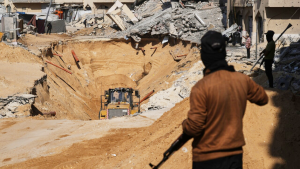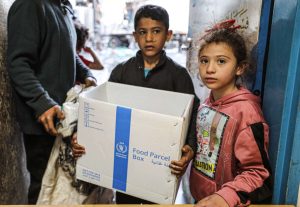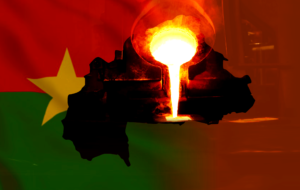Netanyahu Orders Strikes on Gaza, Claiming a Ceasefire Violation: Hamas Denies Involvement
Israeli Prime Minister Benjamin Netanyahu has ordered strong-action against militant targets in the Gaza Strip, accusing Hamas of violating a fragile ceasefire. The move reignited fears of renewed conflict just months after a US-brokered truce brought a tenuous calm to the region. Hamas, however, denies any involvement in recent clashes in Rafah, insisting it remains committed to the ceasefire agreement.
According to Netanyahu’s office, consultations with top security officials concluded with instructions for immediate military retaliation. “Following a ceasefire violation by Hamas, the Prime Minister ordered strong action against terrorist targets in Gaza,” – the statement read.


In response, Hamas’ armed wing, the Ezzedine al-Qassam Brigades, said – “it had no knowledge of any incidents or clashes taking place in the Rafah area,” describing the zone as being under the occupation’s control; and reaffirmed its commitment to uphold the ceasefire.
Beyond the political statements and military maneuvers, the renewed tension exposes the deep fractures that have come to define life in Gaza and Israel. In the Nuseirat refugee camp, a displaced Palestinian boy was photographed carrying a box of World Food Programme aid. An image that captures both the endurance and exhaustion of Gaza’s families, many of whom have endured years of displacement, loss, and uncertainty.
The implications of this flare-up stretch far beyond the battlefield. Families already living on the brink face fresh humanitarian strain as aid agencies warn that even brief military escalations can sever food, water, and medical supply routes. Businesses in both Gaza and southern Israel, struggling to recover from the last wave of conflict, fear renewed instability that could choke trade and deepen poverty.
Politically, Netanyahu’s decision signals renewed domestic pressure to project strength, in the midst of a growing criticism against his government towards the handling of security and economy. On the flipside of the coin, accusations of ceasefire violations against Hamas, could erode its fragile political legitimacy among Palestinians who are weary of war, but skeptical of peace promises.
Culturally and socially, the recurring violence perpetuates a cycle of trauma that shapes generations. In Gaza, parents speak of children who know the sound of drones better than lullabies. In Israel, families brace once again for sirens that interrupt school days and family dinners.
While both sides claim commitment to peace, the rhetoric of a strong-action and the denial of responsibility, leaves civilians trapped in the middle. An implication of human-cost that neither statement fully acknowledges.
As the world watches, diplomats call for restraint. But in the refugee camps of Gaza and the border towns of Israel, people brace for what has become an all-too-familiar uncertainty, the uneasy silence before the next explosion.








